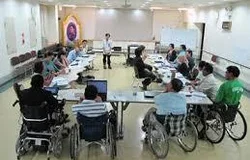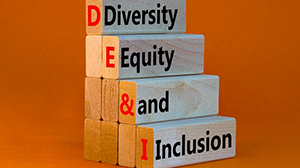Daniel Davidson, MD, MBA, DBA, PHD
Introduction
In a society where mental health disorders are becoming more widely acknowledged as serious concerns, non-governmental organizations (NGOs) are essential in fostering mental health and providing assistance to individuals impacted by mental health illnesses. NGOs are significantly advancing the de-stigmatization of mental illness and offering essential assistance to those in need through advocacy, awareness campaigns, community outreach, and direct services.
Destigmatizing Mental Health
Destigmatizing mental health is the process of confronting and transforming the discriminatory practices, negative attitudes, and stereotypes associated with mental illness. The widespread stigma that many societies attach to mental health issues can cause individuals who are impacted to feel ashamed, alone, and reluctant to ask for assistance. In order to foster a more accepting, compassionate, and inclusive atmosphere where people feel at ease talking about their mental health issues and getting the assistance and resources they need, destigmatization initiatives are being undertaken.
Increasing Awareness:
In order to debunk myths and misconceptions regarding mental illness, education and awareness initiatives are crucial. These projects contribute to the fight against ignorance and the advancement of understanding by disseminating correct information regarding the causes, symptoms, and treatments of mental health issues.
Telling Personal Stories:
Mental health issues can be made more relatable and prejudices can be dispelled by hearing from those who have personally dealt with them. Narratives from personal experience mainstream the discussion surrounding mental health and demonstrate that people of all ages, genders, and backgrounds can be impacted.
Fighting Discrimination:
Non-governmental organizations and advocacy groups strive to combat laws and practices that discriminate against people with mental health disorders and could contribute to their continued stigma. This involves promoting fair treatment and opportunities for those with mental illness in the workplace, housing market, and healthcare system.
Promoting Open Communication:
Establishing safe environments for candid conversations on mental health empowers people to share their stories freely and ask for help from experts and peers without worrying about prejudice or condemnation. People can interact with others and share their tales through initiatives like internet platforms, community forums, and support groups.
Encouraging Positive Language:
Attitudes on mental health are greatly influenced by language. Promoting the use of courteous, de-stigmatizing language contributes to the development of a more understanding and compassionate society. This entails staying away from disparaging words and putting the person before the diagnostic by emphasizing the individual.
Media Representation:
How mental health is portrayed in the media can either support stigma or dispel preconceptions. NGOs seek to advance sensitive and truthful depictions of mental illness in popular culture and the media, showcasing the range of experiences and stressing themes of perseverance, optimism, and healing.
Advocacy and Policy Reform
In the context of mental health, advocacy and policy reform refer to actions taken to change laws, regulations, and government procedures in order to improve the care provided to those who are mentally ill and to advance mental health in general. Advocacy NGOs put up endless effort to tackle systemic obstacles, service deficiencies, and discriminatory behaviors that impede mental health care accessibility and sustain stigma. To better understand how advocacy and policy reform are essential elements of mental health promotion, consider the following:
Legislative Advocacy:
NGOs work to persuade legislators to propose, support, or approve laws that deal with mental health issues. This could entail promoting better access to care, more financing for mental health services, the inclusion of mental health into primary healthcare systems, and the defense of mental health rights.
Policy Analysis:
To evaluate current mental health policies and pinpoint opportunities for development, non-governmental organizations carry out research and analysis. These organizations are able to offer recommendations for policy reform that are supported by research by looking at how present policies affect mental health outcomes and inequities.
Coalition Building:
In order to create coalitions and alliances centered on mental health advocacy, NGOs frequently work with various stakeholders, such as governmental organizations, healthcare providers, advocacy groups, and people with lived experience. These coalitions can strengthen their lobbying efforts and gain more clout with legislators by pooling their money and voices.
Public Awareness Campaigns:
Nonprofits use public awareness campaigns to dispel myths and misconceptions regarding mental health concerns, educate the public and decision-makers about these challenges, and rally support for changes in legislation. These campaigns increase awareness and provide impetus for advocacy actions by arranging events, sharing personal narratives, and distributing information via media outlets.
Legal Advocacy:
In order to defend the rights of people with mental illnesses and oppose discriminatory behaviors, non-governmental organizations (NGOs) may take up legal advocacy. This could entail bringing legal action, taking part in court cases, and promoting the application of laws and rules pertaining to mental health.
Community Outreach and Support
The term “community outreach and support” describes the initiatives taken by non-governmental organizations (NGOs) to offer aid, materials, and services to people with mental health issues as well as the communities they affect. Engaging communities directly to address their mental health problems and provide various forms of support is the main focus of this component of NGO activity. Here’s a closer look at what community support and outreach involve:
Helplines and Hotlines:
Non-profit organizations frequently provide helplines and hotlines that are manned by volunteers or trained professionals who offer emotional support, crisis intervention, and connections to mental health resources. These hotlines provide people with a discreet and convenient means of asking for assistance, particularly in times of crisis or hardship.
Support Groups:
Nonprofit organizations host support groups where people with comparable experiences with mental health issues can get together to discuss their challenges, life lessons learned, and coping mechanisms. Peer support and understanding are provided by these groups, giving participants a sense of belonging, validation, and solidarity.
Counseling Services:
A number of non-governmental organizations (NGOs) provide treatment and counseling led by certified counselors or licensed experts. To ensure accessibility for individuals who might not be able to afford standard therapy, these services may be provided at no cost or on a sliding basis.
Programs for Crisis Intervention:
Nonprofits may run crisis intervention initiatives that offer prompt support to those going through severe mental health emergencies. Skilled crisis intervention professionals can provide phone, in-person, or online chat support, assisting people in resolving difficult circumstances and establishing connections with relevant resources.
Peer Support Networks:
These initiatives match people who are currently experiencing mental illness with others who have firsthand experience with the condition. These peer supports work as role models and motivation for others on their recovery journeys by providing empathy, understanding, and helpful guidance based on their own experiences.
Resource Referral and Navigation:
Nonprofit organizations assist people in navigating the intricate mental health system by offering guidance, recommendations, and support in obtaining relevant resources and services. This could be putting people in touch with reasonably priced counseling services, treatment plans, support groups, or social services.
Awareness and Education
Initiatives for mental health awareness and education center on boosting early intervention to treat mental health issues, building understanding, and spreading knowledge. What NGOs do on this important area is broken down as follows:
Information Dissemination:
Nonprofit organizations create and disseminate educational materials that offer precise and easily comprehensible information about mental health diseases, symptoms, and available treatments. These materials include booklets, brochures, and internet resources. Many audiences, including individuals, families, businesses, schools, and communities, are frequently the focus of these communications.
Workshops and Seminars:
To increase understanding of mental health issues and develop capacity among diverse stakeholders, NGOs host workshops, seminars, and training sessions. These gatherings could address issues like stress reduction, coping mechanisms, preventing suicide, and comprehending prevalent mental health conditions including schizophrenia, anxiety, and depression.
Public Awareness Campaigns:
Non-governmental organizations (NGOs) use print, radio, television, and social media to spread awareness of various issues. These efforts seek to dispel stigma, advance comprehension, and foster candid discussions on mental health. To personalize the experiences of those who suffer from mental illness, they frequently include testimonies of personal healing and resiliency.
School and Community Programs:
To provide mental health education programs for students, teachers, parents, and community members, NGOs work in partnership with schools, colleges, universities, and community organizations. To enhance mental health and lessen stigma among young people, these programs may include peer support efforts, mental health literacy curricula, and awareness-raising events.
Training for Professionals:
To help healthcare practitioners, educators, social workers, and other professionals better understand mental health concerns and increase their ability to serve those in need, NGOs offer training and professional development opportunities. Topics include evidence-based treatment methods, cultural competency, and trauma-informed care may be covered in this program.
Online Resources and Helplines:
Non-governmental organizations (NGOs) create and manage online resources and helplines that provide resources, information, and support to people looking for help with mental health issues. These platforms guarantee that people in need, wherever they may be, have easy access to self-help resources, crisis intervention services, and referrals to nearby mental health professionals.
Community Engagement Events:
To get the public talking about mental health and wellbeing, NGOs host community engagement events including panel discussions, awareness walks, and mental health fairs. These gatherings give people the chance to get knowledge, exchange stories, and get help in a comforting, nonjudgmental setting.
Innovation and Research
Innovation and research are crucial factors in the field of mental health that propel advancements in our knowledge about, ability to diagnose, treat, and assist those who suffer from mental health disorders. Non-governmental organizations (NGOs) are important because they do research and encourage innovation to meet the changing requirements and difficulties of the area. The following are some ways that NGOs might support mental health through innovation and research:
Innovation in Technology:
Nonprofit organizations frequently investigate and create innovative technology-based approaches to improve mental health services and assistance. This covers the creation of telemedicine services, digital mental health interventions, online therapy platforms, and mobile applications. Increased access to mental health care is the goal of these innovations, particularly for those who live in underprivileged areas or encounter obstacles to traditional in-person care.
NGOs work with communities to develop and execute creative, community-based interventions that cater to the specific mental health needs of the area. Art therapy programs, peer support groups, community workshops, and other initiatives catered to particular demographics or cultural contexts are a few examples of these interventions. NGOs guarantee that services are culturally appropriate, easily accessible, and efficacious by including community members in the planning and execution of programmes.
Research Partnerships:
To further our knowledge of mental health diseases and enhance treatment outcomes, numerous NGOs work in partnership with academics, universities, and mental health facilities to undertake research studies. These research collaborations could concentrate on issues like the efficacy of various therapy modalities, the influence of socioeconomic variables on mental health, or the creation of novel treatments and interventions. NGOs contribute to evidence-based practices and scientific knowledge, which in turn shapes the future of mental health care.
Data Collection and Analysis:
In order to better guide their programs, advocacy efforts, and resource allocation, NGOs gather and analyze data on mental health trends, prevalence rates, service utilization, and outcomes. NGOs can track the success of activities, identify new needs, and support policy changes based on empirical evidence by using this data-driven approach. NGOs may also work with researchers to carry out qualitative research, population-based surveys, or longitudinal studies to learn more about mental health concerns from a variety of angles.
Conclusion:
In order to support those who are suffering from mental illness and to promote mental health, non-governmental organizations are essential. These organizations are crucial in de-stigmatizing mental health, pushing for policy reform, offering crucial assistance, increasing awareness, and encouraging innovation in the field through advocacy, awareness campaigns, community outreach, and direct services. The work of non-governmental organizations (NGOs) is crucial in fostering a world where mental health is given priority and everyone has access to the treatment and support they require to flourish, especially as we continue to navigate the complexity of mental health in our culture.








